Meet Scott Smoler
Scott Smoler, Founder, Head of School
MSA: Tell us a little about yourself. How did you land in the world of education and what has your journey entailed?
Scott: I first ventured into education when exploring schooling options for my two children. Reflecting on my own educational experiences, I sought an approach that tapped into their natural motivations and personal interests. This led me to choose the Montessori School of Tokyo. However, as I was considering future high school options, I realized there was no existing model that emphasized authentic, project-based learning tailored to students' interests and strengths. Driven by a desire to create such an environment, I collaborated with the UWC ISAK Japan international high school to pilot a unique program for their 10th-grade leadership class, which was a great success. The success of this project, coupled with the absence of a high school that embodied these principles, and the support of like-minded co-founders, culminated in the creation of The Innovation Fellowship. My journey in education has been deeply personal and driven by a commitment to fostering environments where students can thrive by engaging in meaningful, passion-driven learning experiences.
MSA: Thanks for sharing that with us. What were important early influences that shaped who you are as a teacher / leader ?
Scott: My journey was profoundly shaped by a dissatisfaction with traditional schooling, where I often found the work uninteresting and lacking relevance. This realization became even clearer once I entered the workforce and discovered the joy of engaging in meaningful, authentic tasks. I realized the importance of authenticity and purpose in work, which traditional schooling often lacks, focusing instead on simulated tasks just for generic skill development and knowledge acquisition. Another crucial influence was my professional experience, where I witnessed firsthand the value of coaching and mentorship. These experiences taught me that the methods we use to guide students should not be so different from those used by mentors in the professional world. Altogether, these influences inspired me to create a learning environment that prioritizes real-world relevance, student interests, and personal growth.
MSA: Describe a specific change project you have been a part of. What were the main obstacles? How did you overcome them?
Scott: One significant change project was, prior to starting TIF, my involvement with UWC ISAK Japan, where I helped reimagine their Grade 10 Leadership Program. Initially, I had many ideas about how to improve high school education but lacked a platform and access to students. After connecting with a UWC ISAK board member, I was invited to join the task force responsible for redesigning the program. The main obstacle was aligning my ideas with the school's values and getting buy-in from stakeholders. By directly engaging with each task force member, incorporating their feedback, and collaborating closely with the program's main coordinator, we successfully implemented a new, impactful curriculum grounded in my ideas. This experience ultimately inspired me to expand the program and create TIF, a school dedicated to authentic, student-centered education.
MSA: What does "learning in community" mean to you? How do you stay connected and in-the-know about all things education?
Scott: "Learning in community" means expanding the educational experience beyond the classroom. At TIF, students start by engaging in "zero-to-one" projects based on their passions. Once they validate their interests, we connect them with external mentors who are experts in those fields. This not only provides students with valuable knowledge and guidance, but also gives them access to professional platforms. In turn, mentors feel a connection to our school, creating a network of support. As we grow, this model can foster a thriving community of diverse professionals and engaged learners, enriching the educational landscape.
MSA: Speaking of growing, what is a critical topic / question in education that everyone will have to attend to in the future?
Scott: A critical question facing education is how to future-proof learning in a rapidly changing world. With exponential advancements in technology, especially AI, the traditional model of education is being challenged. Schools must rethink what knowledge and skills are essential. At TIF, we tackle this by making education hyper-personalized and aligned with the latest global developments. By anchoring learning in students’ passions and connecting them with cutting-edge fields and companies, we ensure that the skills and competencies they develop are always relevant. This approach keeps education dynamic and prepares students for the uncertainties of the future.
MSA: Thank you for sharing your change story with us Scott!
Contact: scott@innovationfellowship.org | Linked In


